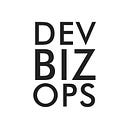The New Stack Overflow
In one of the more memorable scenes in the show Silicon Valley, Jared Dunn of the Pied Piper team notices a whiteboard with startup ideas. The common thread? They start with the word “New” and end in the name of a famous US tech company. There is even a entry called “New Pied Piper” that Jian slightly wipes off the board.
Ultimately Jian Yang’s plans of copying his way to Internet billions does not pan out. But in the real world, there are plenty of legitimate startups that all do similar things. Whether ride hailing or food ordering or SaaS based developer tools, there are plenty of options along the spectrum from somewhat analogous to outright copycats.
But of the oceans of similar products across every category, only a few are ever considered best-in-class. When you think of CRM, you think Salesforce. For service desk. ServiceNow is top of mind. For messaging, practically everyone is on Slack. For every product out there, there is the gold standard.
The cynic might say that it is marketing and money that leads to market dominance. The economist would say the market decided. The entrepreneur might highlight novel strategies and innovative business models. Developers though always say it’s about the product itself.
Developers are about solving problems in the most efficient way possible. They want to ruthlessly eliminate inefficiencies to the point of setting up their text editor with a secret language of shortcuts to type faster. Doing so allows developers to get into their flow and be more productive. If the product does not perform or do what they expect it to, they have no problem moving on to something else.
So when products like Slack and GitHub seem to take off in the developer world, it is because they were built to help developers to get back to their flow state. They have the user seal of approval.
In the same way, that is what led to Stack Overflow becoming such a valued part of the developer’s toolkit. The idea of Stack Overflow was not new at the time as things like Experts Exchange existed long before. The thing that Stack Overflow got right however is that they eliminated inefficiency for developers by removing barriers to solving challenging coding problems.
The popularity of Stack Overflow led to a number of clones to solve the thing that Stack Overflow could not help with at the time. That is an internal version that could host private and proprietary Q&A. Now that Stack Overflow has a private Q&A offering for companies and teams, it enters a crowded field serving the market for knowledge sharing and developer collaboration. Some are rudimentary open source toolkits and others are more robust offerings like Atlassian’s Confluence.
Is a private version of Stack Overflow really so much different than any of the free open source versions? On the surface, not so much if all you look at is the code and the features. Copying features is not difficult, especially for what seems like such a basic product. It’s a Q&A tool after all, and not some satellite sending pictures to Earth from 4 billion miles away.
The things that you cannot replicate though are the non-obvious aspects that make such a tool become loved and highly adopted. That includes the spit and polish of the user experience, the emotional attachment to a familiar brand, and the collective knowledge of building engaged online user communities.
Over the past ten years, Stack Overflow refined the user experience, tweaked the gamification, improved site performance, and built a thriving community around their growing body of content. Of all of those enhancements though, it was the community development that had the most lasting impact and is what has led Stack Overflow to grow rapidly over the past decade.
If all you want is a place for developers to do Q&A, any tool will suffice. If you want to foster cross-organizational collaboration, elevate engineering excellence, improve software delivery performance, or increase developer productivity, then you need more than a tool. That requires a community based approach and the proper catalyst to get started, one that can accelerate the market dynamics of growing an online user content community.
You have most likely heard the adage:
Built it and they will come.
That is the classic startup founder’s belief. That is also why 90% of startups fail and another 9% simply muddle through a miserable existence. It also reflects the reality of most product launches that fail on delivery. It’s not because they do not work, but because there was no thoughtful approach to establishing the market and helping users see why they should care.
Stack Overflow is providing more than just a tool. We are influencing the way developers and technical teams and even entire product teams work more effectively. We are helping teams to vastly improve software delivery performance by building thriving internal communities. Those are the stories we are enabling for companies that I will be sharing more of in 2019.
So maybe in a sense this really is the new Stack Overflow. What about you, is there something you are doing that is completely new this year on the coding or tech front?
Can “Accept cookie” button in a website be malicious?
Those buttons & popups are definitely annoying, but are they dangerous?
We help IT leaders in enterprises solve the cultural challenges involved in digital transformation and move towards a community based culture that delivers innovation and customer value faster. Learn more about our work here.
